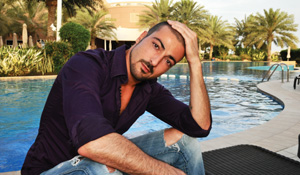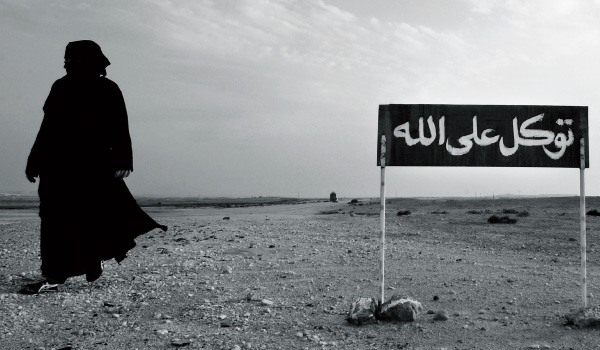Perceptions of women in the Arab world vary from place to place. Arguably, though, there is a propensity for negative stereotyping. Natasha Bird talks to writer, director and movie-maker Joseph Tito about his upcoming project — a film seeking to bring the strength and character of Bahraini women to light.
The Arab world has been experiencing a particularly high level of global exposure in the last few years. The Arab Spring in Tunisia, Egypt, Libya and beyond has attracted our attention and journalists and self-appointed commentators alike have flooded the internet with accounts of brutality, tyranny and revolution. Whether consciously or not, most of the news-aware population has begun to form opinions about this part of the world — relating to politics, history and even the traditions and cultures.
Although a lot of the focus has been on government organisations, other components of the Arab world have come under scrutiny. The women of the Middle East have seen the spotlight turn firmly in their direction. Unfortunately, though, this hasn’t been an overwhelmingly positive experience. From condemning the hijab to lamenting the idea that women aren’t allowed to drive in certain countries, there has been an alarming level of criticism.
The idea that the women in the region are weak and inferior or designated as second-class citizens by their male counterparts is something that this magazine has been fighting against since its inception. Luckily for us, there are others out there on the same mission. Joseph Tito, a young film-maker from Italy, currently based in Bahrain, is one such person.
 Joseph might still be a relatively young buck in the film industry, but that isn’t to say he doesn’t already have some big achievements under his belt. His work has had showings at a variety of prestigious international film festivals, including those in Toronto, Washington, Madrid and Sydney and some have gone on to be distributed by the likes of the Canadian Filmmakers Distribution Society and Indican Pictures.
Joseph might still be a relatively young buck in the film industry, but that isn’t to say he doesn’t already have some big achievements under his belt. His work has had showings at a variety of prestigious international film festivals, including those in Toronto, Washington, Madrid and Sydney and some have gone on to be distributed by the likes of the Canadian Filmmakers Distribution Society and Indican Pictures.
His latest project is a film called Dana, which chronicles the lives of three generations of Bahraini women within the same family as they fight for the right to be educated, to travel, to be independent and to follow the religion of their choosing. “I came on holiday to Bahrain to see a friend and I met a lot of Bahraini women — from different age groups, classes and religious denominations. And it completely changed my impression of Arab women. I realised that I had this view of them as covered, silent, weak and even beaten. This isn’t the case,” Joseph explains.
“Too many films and too much of the literature that comes out about the Middle East focuses on the negative. Osama, by Siddiq Barmak, A Separation, by Asghar Farhadi or The Kite Runner by Khaled Hosseini, for example,” he continues; “The media and then the films and books are what form our opinion and they display women as seemingly having no power.”
A need to overturn these sorts of stereotypes is what fuels Joseph’s enthusiasm for his current undertaking. “For me,” he says, “it is important that my films make people think. I enjoy watching films that, when the credits roll up, you are thinking or arguing with someone about it. As a film-maker, I see it as my chance to tell a different story, or a different viewpoint. I don’t want to tell people what to think, but I want to leave them with several accounts and then leave them to think about which they agree with and which they don’t.”
It has been important to Joseph, of course, to make sure that some of the strong Bahraini women that he admires so much are a part of the project: “I have this amazing Bahraini writer. I won’t give away her identity just yet, but she was recommended to me by the lovely Shaikha Mai. It is women like Shaikha Mai that make me want to do this film. She is powerful and strong and shows a real determination and love for the project.”
The film will demonstrate the changing role of women over the course of three generations. Dana, the main character, is outspoken and determined. She travels abroad to go to university and she joins the political student union whilst there, but her mother Hessa and her daughter Layla’s stories are very different. Hessa, although one of the first women to drive in Bahrain, was married at 12 and didn’t go to university. Layla, on the other hand, has a much greater degree of freedom, but establishes a strong religious identity and chooses to wear the burqa.
Joseph is certain of the topicality of his project. “The women in this film are going to be real people”, says Joseph, “Yes, this is an Arabic story, but it is also universal. My own grandmother was married at the age of 12 in the south of Italy. Women’s roles have evolved everywhere.”
When I ask him about his motivation for concentrating on women, his answer is more than a little heart warming: “All my films are women-based. I love my mother. She is strong and open and goes on and fights. I think that if women ruled the world we would be living in a much happier and safer place. Women are mothers and when you are a mother and you give birth to something, you are just kinder and more compassionate.”
There are a large number of parts to be played and Joseph is determined to cast as many local Bahraini actresses as possible. If you are interested in taking part in the film, you still have a chance to audition. Bahrain’s first wave of castings will take place on May 17, 18 and 19. Details of further auditions and a breakdown of each character can be found on the JEO Productions website. For more information visit www.jeoproductions.com or call Leila on 34 394-517.


































